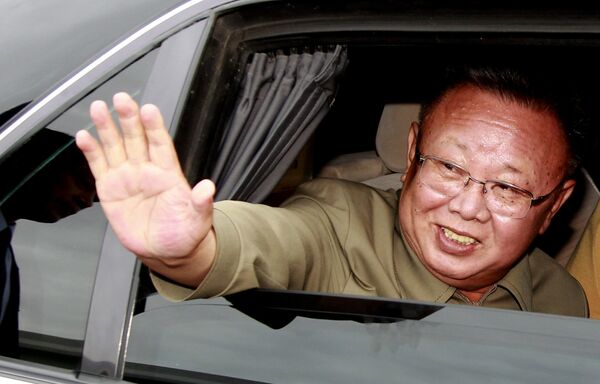"Without preconditions" - these two words are the most important outcome of the meeting between North Korean leader Kim Jong-il and Russian President Dmitry Medvedev at the Sosnovy Bor military garrison near Ulan-Ude, Buryatia. They refer to Pyongyang's readiness to return to the six-party talks on the North Korean nuclear problem, which in itself is no news. But the absence of preconditions and the fact that North Korea may introduce a moratorium on nuclear arms production and testing - that certainly deserves attention.
Back to 2008
The news that the six-party talks, suspended in 2008, were about to start again was announced on July 22, 2011, in Bali, Indonesia, during the ASEAN security forum, just about the only regular international event attended by both Koreas.
And so Bali hosted a meeting of representatives of Pyongyang and Seoul, Vice Marshal Ri Yong Ho and foreign ministry advisor Wi Sung-lac, respectively, and the meeting was deemed "constructive." There have been other meetings, too: all the six-party talks participants (both Koreas, the United States, China, Russia and Japan) met with each other.
Russian Foreign Minister Sergey Lavrov then told journalists that an important outcome of these talks was the decision to preserve the six-party format. There had been serious doubts about that, since some participants of the talks, notably, Japan, tried to bring other issues to the negotiating table from time to time.
More meetings followed, including one on July 31 in the United States, when North Korean First Deputy Foreign Minister Kim Kae-gwan met with Stephen Bosworth, U.S. Special Representative for North Korea Policy. That went well, too.
The history of the six-party talks goes far back - after all, they began in 2003 - but the single item on their agenda has been clear from the outset: North Korea has to give up any suspicious military nuclear programs in a transparent and trustworthy manner, in exchange for assistance with energy supply. The only thing that prevented the implementation of these agreements was Pyongyang's doubt - often grounded - that its partners (primarily the United States) will honor these agreements. Now everything is about to start from scratch.
As to preconditions, they were and are still being set by South Korea. They may include an apology from North Korea for firing at South Korean territory, abandoning nuclear programs even before the talks start, or something else. It was natural for the resentful Pyongyang to come up with its own preconditions in response, and it is certainly good at it.
So the meeting in Sosnovy Bor clarified one truly important aspect: Pyongyang is willing to go back to the six-party talks without setting any conditions. Moreover, North Korea may suspend, if not entirely give up, its nuclear programs before the final agreement is reached.
So Pyongyang is willing to return to the gradual step-by-step settlement plan, which was ready long before 2008, when the talks were suspended. It also envisaged suspension of the nuclear programs and other steps.
Now it is necessary to get a clear response from South Korea: Seoul is now the only party that continues to object. Moscow is taking part in the efforts, but the bulk of the persuading is done by the United States.
Miraculous openness
It should be noted that Kim Jong-il did not in fact say anything of the above in Sosnovy Bor. Instead, it was done by the Russian president's press secretary Natalya Timakova. There is no doubt that her statement was coordinated with the North Korean leader, but still, it was not the same as if he had stood up and spoke his mind.
It would be naive to expect the two leaders to appear in front of the journalists for a news conference after the talks and tell them everything. That is what Dmitry Medvedev did. He talked about everything: gas supply to Ukraine, the rebels in Libya and economic agreements with North Korea that had just been reached at the talks. Kim Jong-il did nothing of the kind.
But it should be remembered that, like British royalty, he never does it. He must never be asked questions. Even so, Kim Jong-il demonstrated miraculous openness: he went abroad (somewhere besides China, which he visits from time to time) and took cameramen with him to make a film about the trip and show it at home. Also, a group of journalists were allowed to witness the exchange of niceties between the two leaders ahead of the talks. Of course, when North Korea continues the reforms frozen by the nuclear scandal, there will be more openness. But so far that is all we have.
As to continuing the reforms, it is a matter of money, and money, together with other economic issues, was also discussed in Ulan-Ude. The discussion was as successful as it could have been expected. The project of building a gas pipeline that will go from the north of the Korean Peninsula to the south has been set in motion. Now a commission will be set up to start working on the technical aspects of the issue, politics aside.
The same applies to Pyongyang's debt to Moscow dating back to the Soviet era, which has by now reached $11 billion. Another commission will be set up to decide whether the sum is correct.
But if the nuclear problem is resolved, it will become much easier to deal with pipelines and debts.
The views expressed in this article are the author's and do not necessarily represent those of RIA Novosti.

